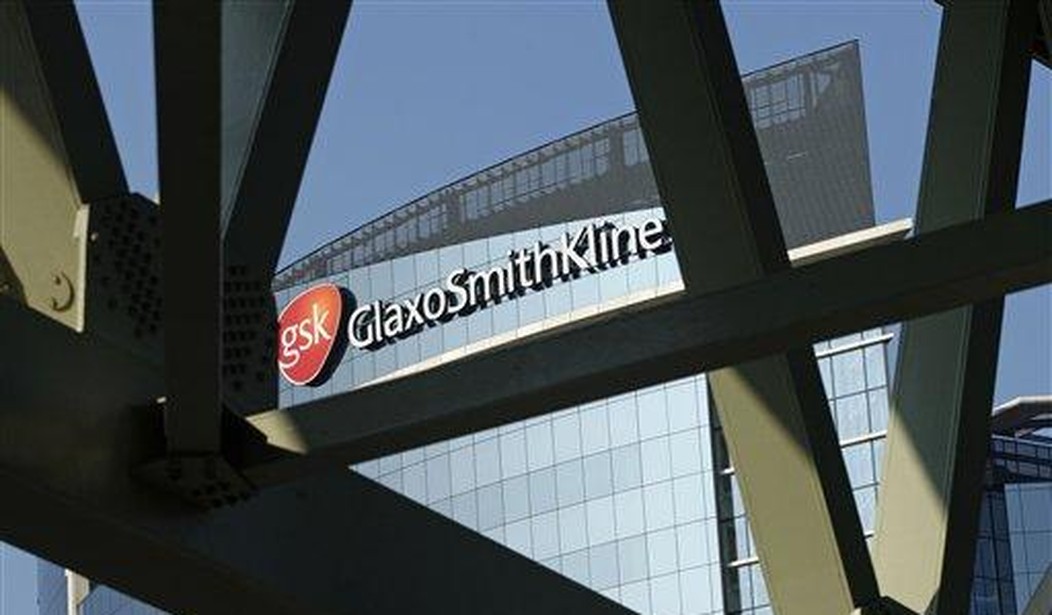A happy surprise, and maybe good news for the vaccines. Monoclonal antibody drugs are expected to be the biggest pharmaceutical casualties of Omicron’s emergence because they target one particular spot on the virus’s spike protein. (Hence the term “monoclonal.”) With a variant like Omicron whose spike protein has undergone a freaky number of mutations, the odds that that particular spot will look different than it did on the original Wuhan strain of the virus are high. The antibodies in the treatment will no longer be able to find their target on the spike, rendering the treatments ineffective. In fact, there’s already evidence that the monoclonal antibodies produced by Regeneron and Eli Lilly don’t work as well against the new variant.
So it was good news when GlaxoSmithKline announced this morning that its own treatment is doing nearly as well against Omicron as it did against previous strains. How come? It seems GSK and its partner, Vir, were clever in choosing which target on the spike to aim at.
“We are confident that sotrovimab will continue to provide significant benefit for the early treatment of patients hoping to avoid the most severe consequences of Covid-19,” said George Scangos, chief executive of Vir, in a statement. He added that sotrovimab was slightly weakened by Omicron, but that the difference wasn’t significant.
The result confirms earlier laboratory data suggesting that the drug worked against the variant. That data, published last week, showed that sotrovimab maintained activity against several of Omicron’s key mutations…
Glaxo and Vir say that sotrovimab was designed to target a spot on the spike protein that is also found in other coronaviruses and that they believe is less vulnerable to mutations.
Sotrovimab reduced hospitalizations by 79 percent in people with mild to moderate COVID who were at risk of severe disease. Another manufacturer, Adagio, is also seeing good results against Omicron from its own antibody treatment, again because its drug is aimed at part of the spike that seems less likely to mutate. The world won’t be without therapies against the new variant even if it explodes globally. And if certain monoclonal antibody treatments are working against Omicron, maybe the vaccines will be more effective than we think too. Vaccine antibodies are polyclonal, targeting multiple spots on the spike protein. If the spike didn’t mutate enough to dodge GSK’s drug, maybe it hasn’t mutated enough to reduce some vaccines’ efficacy much either.
Although, uh, don’t bet too heavily on that:
Here’s total calculated RBD antibody binding to Omicron (w/o R346K) & #SARSCoV2 variants. Omicron has much less binding than other variants; is close to artificial spike polymutant PMS20 of @PaulBieniasz @theodora_nyc (9/n) pic.twitter.com/JVajwUGnS9
— Bloom Lab (@jbloom_lab) December 6, 2021
There’s more good news on COVID therapies today. Merck’s new wonder drug, molnupiravir, took a hit on efficacy between its preliminary data, which showed it was 50 percent effective, and its final data, which showed just 30 percent effectiveness. But Pfizer’s CEO is confident that his company’s drug, paxlovid, won’t see that sort of decline after showing *90 percent* efficacy in preliminary studies:
Pfizer CEO says he expects Paxlovid to be available this year. He says FDA would like to see final data from Pfizer’s study, noting Merck’s final numbers “created a change.”
“I don’t expect in our case this will be the case, and we’ll have the data soon.” (In a couple wks)
— Meg Tirrell (@megtirrell) December 7, 2021
Whether paxlovid works as well against Omicron as it does against Delta is anyone’s guess but it stands a better chance of doing so than monoclonal antibodies do. That’s because paxlovid doesn’t target the heavily mutated spike protein. It’s a protease inhibitor, disrupting the process by which the virus’s molecules are cut and then assembled in human cells during the replication process. If those molecules can’t be snipped properly, the virus can’t reproduce. And that’s not the only COVID treatment in the pipeline:
Coronaviruses produce a host of proteins essential for their replication, and each could be a target of a new drug. When an infected cell makes a new piece of the virus’s RNA, for example, a viral protein called a helicase has to unwind it before it can be packaged into a new virus shell. Researchers are investigating drugs that block the coronavirus helicase, leaving the virus’s genes in a tangled mess…
Dr. Hargrove and her colleagues have modified various versions of a blood-pressure drug called amiloride so that they can latch onto viral RNA. In a study published on Nov. 26, the researchers found three amilorides that grab the RNA of SARS-CoV-2. In a laboratory experiment using infected monkey cells, they found that the amilorides could reduce the production of viruses thirtyfold…
At the Walter Reed Army Institute of Research, researchers are trying to build a pill that will work against all coronaviruses. They are looking for targets common to all coronavirus proteases.
Ideally these drugs will be used in concert, the way medications to treat HIV are combined in “cocktails” to amazing synergistic effect. Although the true ideal scenario is that Omicron will prove so mild in its symptoms that drugs won’t even be needed by most patients to fend it off. Maybe we’ll get lucky?

Some people, like the immunocompromised, will need help defeating Omicron even if they’re vaccinated and the symptoms of infection are as mild as early indications suggest. That’s where GSK comes in.
I’ll leave you with this reminder from Pfizer’s CEO that hyper-transmissibility is still a problem with Omicron even if few patients are getting very sick.
In WSJ CEO Council interview, Pfizer CEO @AlbertBourla is asked if Omicron is more transmissible but milder, if that's a good thing?
Bourla: No. Something that spreads fast means it will be in billions of people and another mutation could arise.
— Meg Tirrell (@megtirrell) December 7, 2021








